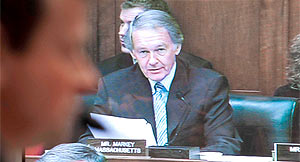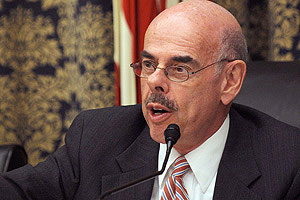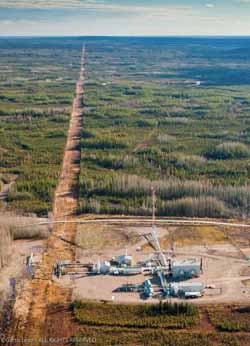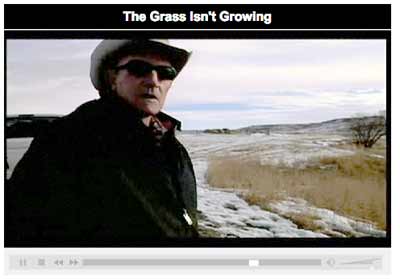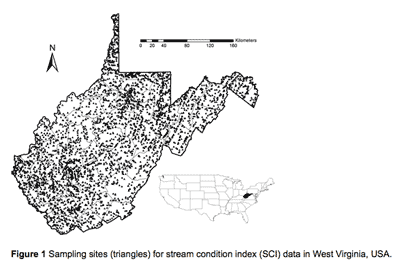Biblio
Energy in Depth is an oil and natural gas industry informational site.
Since June of 2010, this has been the place to read the rebuttal to Josh Fox's documentary Gasland.
"We’ve spent some time over the past couple months taking a critical look at some of the key assertions made in the HBO documentary Gasland, putting forth in that time two separate rebuttal documents that we believe address in a substantive way a number of the misconceptions upon which the film, and its broader political message, is based.
Read the opposing viewpoints on Energy in Depth as an information source on Sourcewatch Wiki
See: Nora Eisenberg. AlterNet. July 23, 2010. Exposing the Natural Gas Industry's Attempt to Silence Its Critics
Please note that information taken from Wikis should be verified using other, more reliable sources. It is a good place to start research, but because anyone can edit a Wiki, we do not recommend using it in research papers or to obtain highly reliable information.
About Energy in Depth:
"Who We Are: America’s natural gas and oil producers – the majority of which are small, independent businesses with less than 12 employees- are committed to strengthening America through the safe, responsible and environmentally-friendly development of domestic energy resources."
See extensive press-releases and archived press-releases reacting to environmental pressure, presenting the arguments of industry in favor of fracking the Marcelus Shale.
Related:
Lee Fuller. "HF 101: As Cornell Begins Study of Shale Gas Exploration, Energy In Depth Offers Itself Up as Resource for Ad Hoc Panel". Energy in Depth.

Lee Fuller
Mike Hale. The New York Times. June 21, 2010. The Costs of Natural Gas, Including Flaming Water.
Oral Statement Submitted by Mr. Lee Fuller, Representing Independent Petroleum Association of America (IPAA) and Energy In Depth (EID), 3-28-10. (PDF, 3 pp., 46,255 bytes). Submitted to: EPA Scientific Advisory Board (SAB) Environmental Engineer Committee Hydraulic Fracturing Research Plan Review. 4/7/2010- 4/8/2010. The St Regis, 923 16th Street, NW, Washington DC 20006.
See: Drilling Isn't Safe.
There are now two websites for the House Energy and Commerce Committee- one for the Republicans and one for the Democrats. For citizens in the U.S., we are still living a Reaganesque "con", an obvious "tell" that Washington is more broken and redundant than ever.
In the David Mamet film, House of Games | Human Nature is a Sucker Bet (1987), Mike and his men [pulling a con job on Margaret] ...see that the jig is up, and nonchalantly pack up the con. Mike apologizes, saying it was “only business … nothing personal.” Margaret puts the pieces together. She spies on the con men--among whom is the "dead" cop/mark--and confirms that everything was a ruse to swindle her out of $80,000...
...Margaret pulls out her gun and dares Mike to beg for his life. He refuses and she shoots him repeatedly until he dies.
Much later, we see that Margaret has gone on with her life, a changed woman, now able to "forgive herself." She shows no sign of guilt or remorse for murdering Mike. She steals a gold lighter out of the purse of another woman in a restaurant and relishes the acquisition.
The energy business and its minions are fighting an undeclared war on the EPA, The Clean Water Act and public saftey. We are all being dragged into this con job. Their argument: the Clean Water Act does not directly address groundwater contamination. Groundwater protection provisions are included in the Safe Drinking Water Act, Resource Conservation and Recovery Act and the Superfund act.
Sounds redundant to me... just give me a cool drink of water 'fore i diiie. (Neil Zusman, 2011-02-02.)
Angelou chose "Just Give Me a Cool Drink of Water 'fore I Diiie" as the book's title because of her interest in "unconscious innocence," which she says is "even lovelier than trying to remain innocent." The title is a reference to her belief that "we as individuals ... are still so innocent that we think if we asked our murderer just before he puts the final wrench upon the throat, 'Would you please give me a cool drink of water?' and he would do so."Angelou has said that, if she "didn't believe that, [she] wouldn't get up in the morning." (Angelou, Maya; Elliot, Jeffrey M. (1989), Conversations with Maya Angelou, University Press of Mississippi, ISBN 0-87805-361-1.)
Update February 2, 2011
See: Andrew Schenkel. "Fracking finger-pointing starts as drinking water violations roll in." Mother Nature Network. 2011-02-01.
A report linking the fracking industry to violations of the Safe Drinking water Act is putting the biggest names in the fracking industry on the defensive. Democrats in the House Energy and Commerce Committee released a report on Monday (2011-01-31) that claims 12 companies in several states dumped more than 30 million gallons of diesel fuel as part of a scheme to extract natural gas from underground space.
See: Tom Zeller Jr. "Diesel Use in Gas Drilling Cited as Violation of Safe-Water Law." NYT. 2011-02-01.
No permits for diesel-based fracking have been sought or granted since the Safe Drinking Water Act was amended in 2005.
Lee Fuller, a vice president for government relations with the Independent Petroleum Association of America, said that was because the E.P.A. had never followed up by creating rules and procedures for obtaining such permits and submitting them for public comment.
The agency did quietly update its Web site last summer with language suggesting that fracking with diesel was, indeed, covered as part of the underground injection program, which would suggest that permits should have been obtained. But Mr. Fuller’s organization, along with the U.S. Oil and Gas Association, has gone to court to challenge the Web posting, arguing that it amounted to new rule-making that circumvented administrative requirements for notice and public commentary.
Thursday, February 18, 2010. "Chairman Henry A. Waxman and Subcommittee Chairman Edward Markey today sent letters to eight oil and gas companies that use hydraulic fracturing to extract oil and natural gas from unconventional sources in the United States. The Committee is requesting information on the chemicals used in fracturing fluids and the potential impact of the practice on the environment and human health."
As Chairman of the Committee on Oversight and Government Reform in the last Congress, Rep. Waxman requested and received information from the largest hydraulic fracturing companies - Halliburton, BJ Services, and Schlumberger - on the chemicals used in their fracturing fluids.
According to this data, two of these companies used diesel fuel in their fracturing fluids between 2005 and 2007, potentially violating a voluntary agreement with EPA to cease using diesel. Halliburton reported using more than 807,000 gallons of seven diesel-based fluids. BJ Services reported using 2,500 gallons of diesel-based fluids in several fracturing jobs. Halliburton and BJ Services also indicated that they used other chemicals - such as benzene, toluene, ethylbenzene, and xylene - that could pose environmental risks in their fracturing fluids.
Today Chairmen Waxman and Markey sent letters seeking additional information from Halliburton, BJ Services, and Schlumberger on these and related issues. The Chairmen requested similar information from five smaller fracturing companies that comprise a growing share of the market: Frac Tech Services, Superior Well Services, Universal Well Services, Sanjel Corporation, and Calfrac Well Services. In addition, the Chairmen sent a memo to Members of the Subcommittee on Energy and Environment detailing the background on the issue, including EPA's recent work on hydraulic fracturing, the Committee on Oversight and Government Reform's investigative findings, and the need for additional oversight and investigation."
Documents included: Examining the Potential Impact of Hydraulic Fracturing, Feburary 18, 2010
Letter to Andrew Gould
Letter to Roger Willis
Letter to David J. Lesar
Letter to Douglas R. Ramsay
Letter to Darin MacDonald
Letter to J.W. Stewart
Letter to Dan Wilks
Letter to David E. Wallace
See: Sabrina Shankman. "Congress Launches Investigation Into Gas Drilling Practices." ProPublica. 2010-02-19.
See: Abrahm Lustgarten. "Clearing the Air on ProPublica’s Drilling Pollution Story." ProPublica. 2011-01-31
See: Candice O'Grady. "Newsweek Greenwashes the Oil Lobby for Real." FAIR. Feb. 2010.
See: Committee Democrats Release New Report Detailing Hydraulic Fracturing Products
See: House committee votes to deny climate change
See: Action Center | Republicans for Environmental Protection (REP America)
The sweet irony of this video - some things, like fracking, are best expressed with a cake!
A recent company event provided an opportunity for one of our engineers to educate children about natural gas development. Parents and educators often ask us for industry material to use with this audience so we made this video in the spirit of creativity.
What do 11 tubs of icing, more than two dozen cookies and 115 cupcakes have to do with natural gas? A lot, actually, once sculpted into a layer cake that uniquely demonstrates how the clean energy choice is extracted in our operations.
See: Encana | Mixplex.
See: Spectra Energy's "Kids Say [the] Darndest Things About Natural Gas".
Spectra Energy Watch said, "When gas companies send children to defend the industry, it is a sign of desperation."
Spectra Energy’s latest 3-minute PR effort in the form of a kiddie video includes a touch of irony. It begins with the kids comparing natural gas to farts, when asked, “What is natural gas?”.
The video has been removed by Spectra Energy. We saw it.
Among the largest natural gas companies in North America, based in Calgary, Alberta.
The Michigan Land Use Institute reported that In 2006 the Colorado Oil and Gas Conservation Commission fined Encana $370,000 for flawed drilling practices. Residents said the drilling contaminated Divide Creek with methane and benzene.
Alan Boras, Encana’s spokesman, said in an interview that the leak was “a rare circumstance” caused by flaws in the cement that holds the well casing in place.
“Within less than a week of being alerted, the problem was rectified,” Mr. Boras said.
Lisa Bracken, on Journey of the Forsaken, reported on June 30, 2010 that,
"EnCana has recently submitted twenty well permits (with at least twenty more on the horizon) to infill drill in our neighborhood... despite 1) low natural gas prices, despite 2) EnCana suing the state of Colorado over new public safety rules (which are by the way utterly toothless) and which they say are driving them from Colorado; and, 3) despite the persistent, increasing and largely un-investigated presence of leaking hydrocarbon toxins into groundwater and private water wells.
Why the renewed surge in activity? Could be because China is dumping investment dollars into EnCana's bank account to facilitate extraction of gas for export to China?"
See: Natural gas: the commodity world’s ‘ugly duckling’.
See Lisa Bracken video.
See: Lisa Bracken Website: Journey of the Forsaken.
See: Will Koop. Encana's Cabin Not So Homey: Cumulative Environmental Effects - An Unfolding and Emerging Crisis in Northeastern British Columbis'a Shale Gas Plays. (PDF 13. 4 MB, 58 pp.). November 9, 2010.
An Introductory Journey Into BC's Dirty Domino Zone - Commentary and Recent Photos by Garth Lenz.
See: Letter written to Vancouver Sun by Fort Nelson First Nation Chief, Kathie Dickie. Dec. 22, 2009. (Koop, p. 21)
Calgary-based EnCana Corporation, Canada's largest gas producer, along with a consortium of seven other oil companies, is planning to build the biggest gas processing plant in North America in the heart of our 1910 treaty territory.
We've been told many things by the B. C government as we've tried to participate in the environmental assessment process. One official said that because our 100-year-old treaty doesn't specifically address clean air, we have no say on clean air when it comes to the construction of the biggest greenhouse gas creator in B.C. Imagine being told by a government official in 2009 that you have no say on the quality of air you or your children breathe! What parent would stand for it?
We understand the value to the province of shale gas development in the Horn River Basin. But such economic development, whether for our community or yours, should not come at the expense of a gutting of the land, water, and air where a community lives.
We are the only Treaty 8 Nation that lives within the Horn River Basin, and this gas plant, designed to open the basin to drilling, pipelines and gas development, will have an immense effect on our rights and interests. Without the capacity to determine and plan for this development, the survival of the Fort Nelson First Nation is in jeopardy. This plant and the development that it brings must not mean the end of us.
Source: Fort Nelson First Nation Chief, Kathie Dickie, Vancouver Sun, December 22, 2009, Premier’s climate-change hypocrisy could doom first nation’s way of life.
See: Julie Green. "The Game Changer." UpHere Business. June 2010.
...In mid-April, Dickie signed an agreement with Spectra. “It’s more than an impact-benefit agreement,” says Spectra’s Duane Rae. “It formalizes the relationship we already have and talks about how we’re going to continue working together.” The band is working on similar agreements with TransCanada and EnCana. Dickie has a list of substantial fears about shale development and water is at the top.
Let us see if we have this right: The tap water is bubbling in Parker County, carbonated with enough natural gas to make it as flammable as a French Quarter cocktail and as explosive as a hand grenade, and the Texas Railroad Commission — consulting its Advent calendar, no doubt — has scheduled a hearing on the matter for Jan. 10.
No need to spoil the holidays with unpleasant decision-making; we’ll just let that gas keep percolating until next month, and hope we don’t get a big boom west of Fort Worth to ring in the new year.
If you haven’t been reading the recent accounts in the paper, here is what’s been going on in Parker County: Residents there reported that their tap water was bubbling. The federal Environmental Protection Agency did tests and determined that the water was contaminated enough by gas to create an imminent threat of fire or explosion. The EPA turned its results over to the railroad commission, which decided to hold a meeting...
See: Bluedaze. "Shale Survival Tools and Medical Information."
See: Sharon Wilson. Dec. 20, 2010. Earth Blog. "EPA's Xmas present to Texas families with drinking water polluted by drilling: cleaner water".
See: Argyle-Bartonville Communities Alliance. Dec. 14, 2010. "Keep Track and Speak Up."
Philadelphia Enquirer editorial. Published: Mar. 22, 2010.
...Representatives of the Marcellus Shale Coalition, an industry trade group, point out that not a single case of groundwater contamination has been linked to their drilling technique, called hydraulic fracturing or "fracking."
It involves pumping up to three million gallons of water (per well), combined with sand and chemicals, more than a mile underground to shatter the rock and release the gas.
But fracking does carry potential risks to the environment. Those concerns are causing government officials elsewhere to proceed cautiously on Marcellus drilling. New York state has imposed a moratorium on Marcellus wells until it completes an environmental-impact assessment.
Cornell Daily Sun Editorial. Published: 2/16/10.
Peter Meinig, chairman of the Cornell University Board of Trustees and former associate of a large natural gas company, is at the center of many competing interests, and should not participate in any decisions the University makes regarding leasing land for natural gas drilling.
...In order to reach the most appropriate outcome for Cornell, and for the University to remain above reproach and second-guessing by the many interested parties, Meinig should recuse himself from all decisions and discussions regarding the leasing of land for natural gas drilling.
Wyoming rancher Ed Swartz is feeling the affects of environmental de-regulation. Hear his story.
Ed Swartz
Gillette, WY
Added: January 18, 2009
Co-Presenting Sponsor: The Fledgling Fund supports the creation and dissemination of innovative media projects that can play critical roles in igniting social change.
The Fledgling Fund believes that film and other creative media can often demonstrate what statistics can not, can create broad understandings of social problems, and can inspire both civic dialogue and concrete action.
eCORP is a Houston, Texas, based multifaceted energy company which, through its subsidiaries, affiliates and related entities, is engaged in the development and operation of natural gas storage facilities, natural gas pipelines, electric power plants, and other energy related facilities.
eCORP and its principals and affiliates have been involved in Stagecoach Natural Gas Storage Facility, Tioga County New York.
The U.S. Department of Energy, Energy Information Administration reported in 2007 that the largest expansion of working gas capacity (13 Bcf) occurred at the Stagecoach natural gas storage site in New York State, a depleted-reservoir facility.
Dr. Nathaniel Hitt
Assessments of ecological integrity are commonly used for conservation planning, but are they also relevant for understanding public health and disease?
In this study, Hitt and Hendryx answer this question in the affirmative, demonstrating that the ecological integrity of stream benthic macroinvertebrate communities is related to human cancer mortality in West Virginia, USA.
The authors concluded that, although the macroinvertebrate data analyzed in their study were collected to assess the quality of aquatic life, such ecological assessments offer valuable insights for public health.
See: Ken Ward Jr. April 21, 2010. The Charleston Gazette | Coal Tattoo. "New WVU-Va Tech study links water quality and cancer deaths in West Virginia coalfields".
Shell | Appalachia
The acquisition of East Resources, a Pennsylvania-based oil and gas company, on July 29, 2010, is the foundation for Shell’s new operations and growth in the Appalachian Basin. Shell’s current Marcellus Shale operations are focused in Tioga County.
On May 28, 2010, Bloomberg.com reported that Royal Dutch Shell Plc agreed to buy closely held East Resources Inc., for about $5 billion.
East Resources will no longer be a U.S. corporation.
This will be the second-biggest oil and gas deal this year, after BP Plc’s cash acquisition of deepwater assets from Devon Energy Corp. for $7 billion on March 11, according to Bloomberg data.
Private-equity firm Kohlberg Kravis Roberts & Co. invested $350 million in East Resources 11 months ago, according to the Journal.
Exxon Mobil Corp., the biggest U.S. oil company, agreed in December to buy XTO Energy Inc., the country’s largest natural gas producer, for $31 billion to gain control of shale-gas assets. Companies from India’s Reliance Industries Ltd. to Japan’s Mitsui & Co. are spending billions of dollars on drilling to dislodge natural gas from shale -- sedimentary rock composed of mud, quartz and calcite.
East Resources, Inc. is an independent exploration and development company with more than 1.25 million acres of land holdings. East Resources owns and operates more than 2,500 producing oil and gas wells in New York, Pennsylvania, West Virginia, and Colorado and is actively exploring drilling programs in Wyoming.
On July 2, 2010, ProPublica reported wastewater from a nearby East Resources gas well leaked into a field and came in contact with farm animals resulting in a state-ordered quarantine of 16 cows.
See: A Fracking First in Pennsylvania: Cattle Quarantine
"Tests performed for East Resources Inc., found hazardous chemicals and heavy metals, including chloride, barium and strontium. East did not dispute that a leak had occurred."
Reuters reported that a survey by Pennsylvania Land Trust Association, based on data from state regulators found that East Resources committed the most violations, 138, followed by Chesapeake Appalachia LLC with 118, and the privately held Chief Oil & Gas Corp. with 109.
Earthjustice Fast Facts
Did you know? We've provided legal representation at no cost to more than 700 clients, from the Natural Resources Defense Council and the Wilderness Society to community-based coalitions. Here are some more facts about us:
- Founded in 1971 as the Sierra Club Legal Defense Fund
- Name changed to Earthjustice in 1997
- Headquartered in Oakland, CA
- Number of employees: ~150
- President: Trip Van Noppen
This fragile Earth deserves a voice. It needs solutions. It needs change. It needs you.
Dirceted by Daniel Bird.
Music and sound design by Hecq.
See: The Story of Stuff | With Annie Leonard
Tides Foundation is proud to present The Story of Stuff — a 20-minute, fast-paced, fact-filled look at the underside of our production and consumption patterns that calls us together to create a more sustainable and just world.
Narrated and created by activist Annie Leonard, the film tells an engaging story about 'all our stuff' where it comes from and where it goes when we throw it away.
Tides Foundation and The Funders Workgroup for Sustainable Production and Consumption partnered with Free Range Studios to produce the film and the website, www.storyofstuff.com
The website includes faith-based teaching guides.
See: Beach Lake United Methodist Church. "Gas Drilling Discussion (Suggested Agenda for) : Biblical and Theological Considerations".
Democracy Now! interview with Environmentalist, 350.org Founder Bill McKibben on Eaarth: Making a Life on a Tough New Planet.
Ahead of Bolivia’s indigenous summit on climate change and the expected unveiling of a Senate climate bill next week, we speak to someone who sounded one of the earliest alarms about global warming.
Twenty years ago, environmental activist Bill McKibben wrote The End of Nature, but his warnings went largely unheeded.
Now, as people are grappling with the unavoidable effects of climate change and confronting an earth that is suddenly melting, drying, acidifying, flooding and burning in unprecedented ways, Bill McKibben is out with Eaarth: Making a Life on a Tough New Planet, a new book about what we have to do to survive this brave new world. [includes rush transcript]
See:Global Warming Frequently Asked Questions
See also: Video - 350.org: Because the world needs to know.
What's the best way to introduce the world to 350?
With over 4000 languages spoken around the world, it's probably not with a bunch of words. We did our best to boil down the science of global warming and vision of the 350 Campaign in 90 seconds--and with no words.
Our focus is on the number 350—as in parts per million CO2. If we can't get below that, scientists say, the damage we're already seeing from global warming will continue and accelerate. But 350 is more than a number—it's a symbol of where we need to head as a planet.
Our theory of change is simple: if an international grassroots movement holds our leaders accountable to the latest climate science, we can start the global transformation we so desperately need.
It’s possible that there is $1 trillion worth of natural gas beneath the ground of Pennsylvania. With that kind of money at stake, out-of-state drilling companies are flocking to Pennsylvania and so are their lobbyists.
Use this site to find out which gas companies have been giving unlimited contributions to Pennsylvania politicians… and who's been taking them.
Common Cause Pennsylvania is a non-profit, non-partisan citizens' lobby organization. We are dedicated to restoring the core values of American democracy, reinventing an open, honest and accountable government that serves the public interest, and empowering ordinary people to make their voices heard in the political process.
We work to strengthen public participation and to ensure that the political process serves the public interest, rather than the special interest. Common Cause Pennsylvania conducted the data research available on this website as part of its "Deep Drilling, Deep Pockets" report, released in May of 2010.










